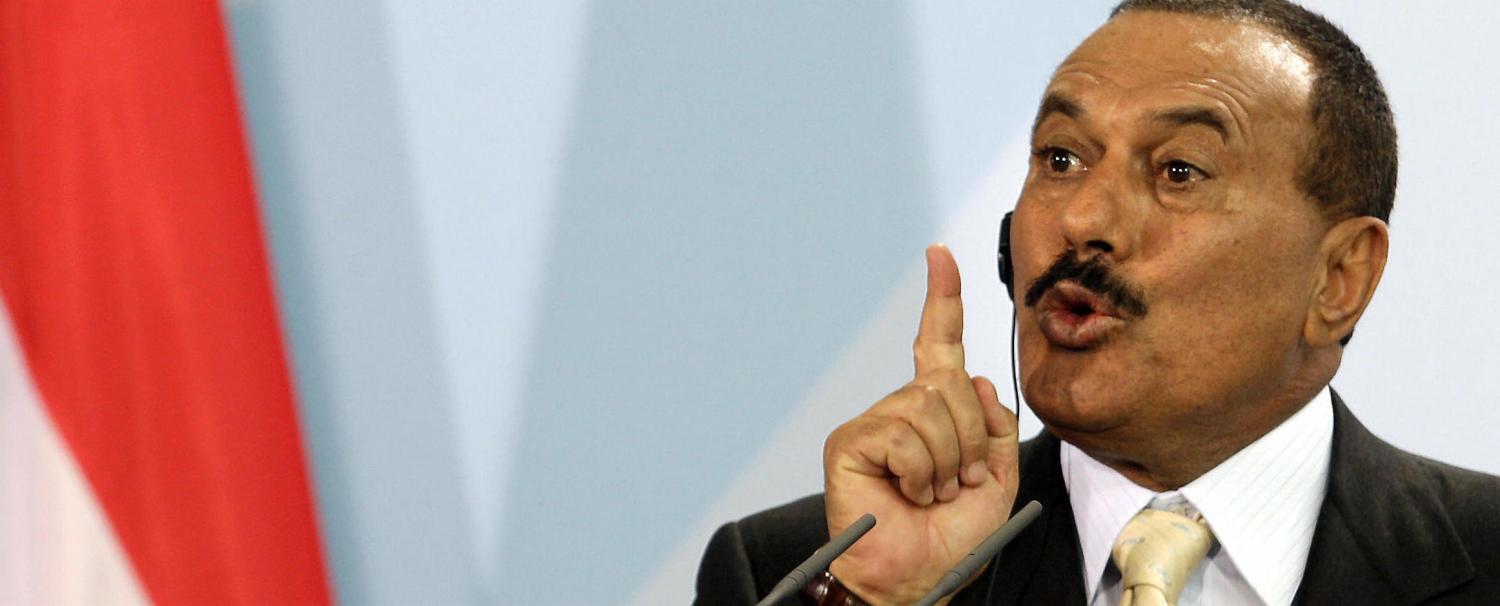Yemen’s Ali Abdullah Saleh, one of the Middle East’s great survivors, is dead. He led a charmed existence in public life for nearly 40 years, most of that time as Yemen’s president, although that nearly came to an end in 2011 when he was seriously wounded by a bombing at the presidential palace. Saleh’s ability to play one side off against another, change loyalties when the times required and building tribal coalitions, allowed him to survive the complex tribal, regional and sectarian links that go to making up Yemeni society. Any number of obituaries give testimony to his political skills.
But his final incarnation was his least successful. He perhaps sensed one final deal could be done to propel him, or perhaps his son, back to the leadership. So he turned against the Houthis, who he had fought six times as president, but had more recently allied himself with in an effective if uncomfortable coalition.
Saleh announced his dramatic split with the Houthis on television last weekend, but it meant he had signed his own death warrant. Houthis’ memories of the six military campaigns Saleh ordered against them were never really forgotten. But the larger context in this saga extends beyond Yemen’s borders.
It is no secret that Muhammad bin Salman, Saudi Arabia’s man of the moment and the architect of the Yemen intervention that continues to be an albatross around his neck, was looking for a way to end the military quagmire. This BBC piece argues that Muhammad bin Salman realised his military campaign was going nowhere, forcing him to engage with Saleh. And Salman’s Emirati allies shared that desire, while also hosting several Yemeni opposition figures of note, including Saleh’s son, Ahmed. This article from al-Jazeera (Qatari-owned, so no friend of the UAE or Saudi Arabia) gives some sense of the Saleh cards that were being played by regional states in trying to shape an outcome in Yemen.
Saleh was unable to deliver tactical level success in Sana’a and the events of recent days do not bode well for the Yemen conflict. Saleh’s failed ‘counter-coup’ shows that the Houthis have more control over Sana’a than their opponents have conceded, and the Emirati and Saudi hopes of finding a short-cut to conclude the Yemen campaign have been dashed. The episode once again reinforces concerns about Muhammad bin Salman’s impetuosity and raises fresh doubts about the ability of the Emiratis to shape events in the region.
The options now appear to be limited. Some of Saleh’s supporters and family members will want revenge, but the Houthis appear to be in the ascendancy. It will be difficult for the Saudis or Emiratis to ‘parachute in’ a new locus of anti-Houthi leadership.
That leaves the option of doubling down militarily or opening direct negotiations with the Houthis. The former has achieved inconclusive results at best to date and will likely increase the humanitarian suffering for minimal results. The latter course will be politically humiliating but likely achieve a more lasting and humane outcome.
But in a region where the ‘politics of the personal’ often precludes wise decision-making, such a blow to pride from a negotiated settlement is likely to be an unacceptable price to pay. Saleh’s death is more likely to increase the suffering in Yemen than relieve it.

